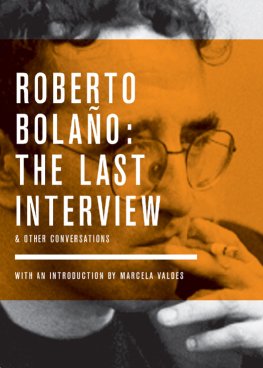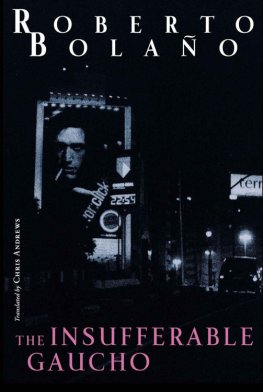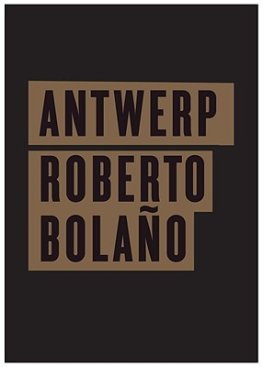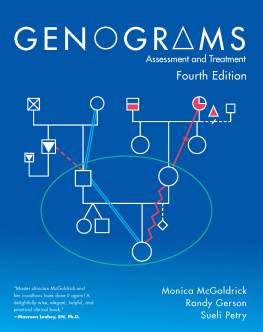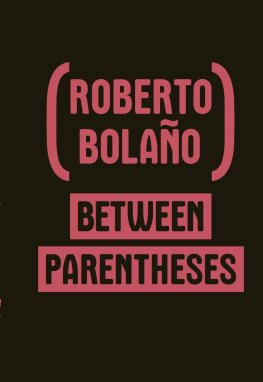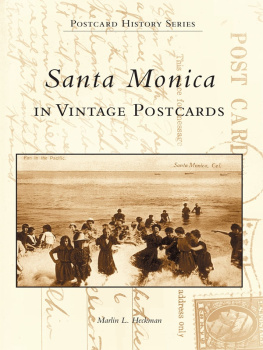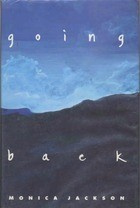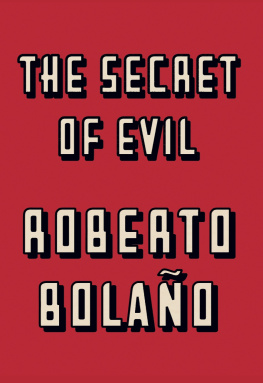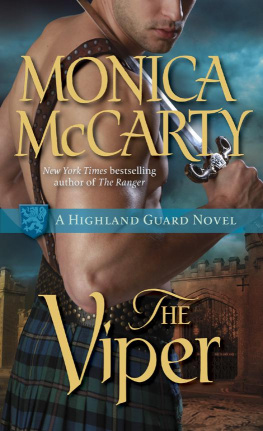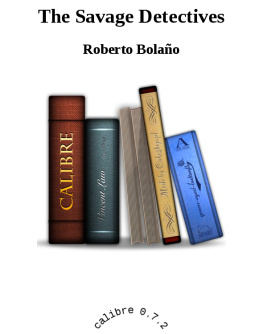Monica Maristain - Bolano
Here you can read online Monica Maristain - Bolano full text of the book (entire story) in english for free. Download pdf and epub, get meaning, cover and reviews about this ebook. year: 2014, publisher: Melville House, genre: Detective and thriller. Description of the work, (preface) as well as reviews are available. Best literature library LitArk.com created for fans of good reading and offers a wide selection of genres:
Romance novel
Science fiction
Adventure
Detective
Science
History
Home and family
Prose
Art
Politics
Computer
Non-fiction
Religion
Business
Children
Humor
Choose a favorite category and find really read worthwhile books. Enjoy immersion in the world of imagination, feel the emotions of the characters or learn something new for yourself, make an fascinating discovery.

- Book:Bolano
- Author:
- Publisher:Melville House
- Genre:
- Year:2014
- Rating:3 / 5
- Favourites:Add to favourites
- Your mark:
- 60
- 1
- 2
- 3
- 4
- 5
Bolano: summary, description and annotation
We offer to read an annotation, description, summary or preface (depends on what the author of the book "Bolano" wrote himself). If you haven't found the necessary information about the book — write in the comments, we will try to find it.
Bolano — read online for free the complete book (whole text) full work
Below is the text of the book, divided by pages. System saving the place of the last page read, allows you to conveniently read the book "Bolano" online for free, without having to search again every time where you left off. Put a bookmark, and you can go to the page where you finished reading at any time.
Font size:
Interval:
Bookmark:
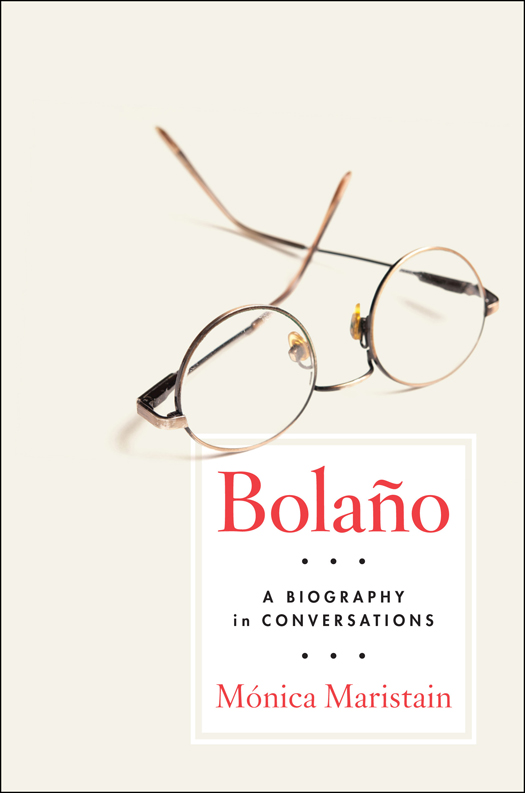
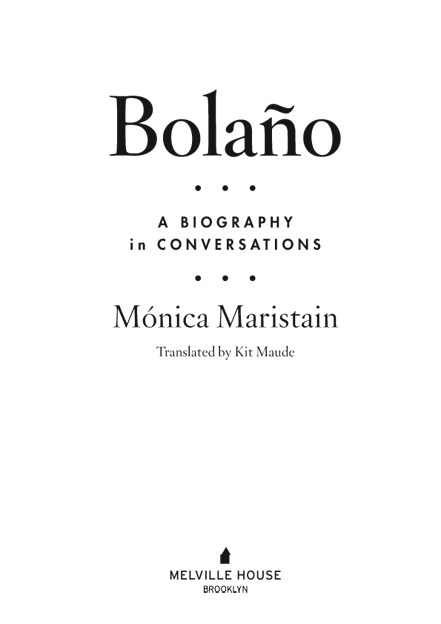
BOLAO
Copyright 2012, 2014 by Mnica Maristain
Translation copyright 2014 by Kit Maude
First published in 2012, in an earlier form, by Editorial Almada S. C. as El Hijo de Mster Playa: Una Semblanze de Roberto Bolan
First Melville House Printing: September 2014
Melville House Publishing
145 Plymouth Street
Brooklyn, NY 11201
mhpbooks.com facebook.com/mhpbooks @melvillehouse
Library of Congress Control Number: 2014946863
ISBN: 978-1-61219-348-9
v3.1
Thanks to Martn Solares, for your confidence; Guillermo Quijas, for your trust and patience; Ricardo House, for the interviews and collaboration; Melina Maristain, for the transcripts and love; and Alejandro Pez Varela.
Grateful acknowledgment is made to Ricardo House for the permission to quote from interviews from his film Roberto Bolao, la batalla futura (The Future Battle), a documentary in three parts, made with Ignacio Echevarra. The chapter Mr. Beachs Son was written in collaboration with the contemporary Argentine poet Diana Bellessi.
A complete biography of Roberto Bolao will not be possible without access to the writers correspondence, diaries, and unpublished work. This work is thus provisional: it relies on conversations with Bolaos parents, friends, and colleagues, as well as members of his Infrarealist literary movement in Mexico and his literary circle in Spain. I have also interviewed a group of literary writers and critics who have been influenced by Bolaos work. These new dialogues are presented alongside newspaper and television interviewswith the aim of providing a portrait of Bolao that goes beyond what we can see of the author in his novels, poems, and essays.
Whenever I think of Roberto Bolao, I remember a poem that I know by heart: Definitions with Which to Await My Death, by the great Argentine lyricist and poet Homero Manzi:
I know that my name will resound in the ears of
my loved ones
as perfectly as a picture.
And I also know that sometimes it will cease to
be a name
and will just be a pair of meaningless words.
The poem strikes a special chord with me because, even though years have passed since the insurmountable loss of Roberto Bolao, a decade is just a drop in the infinite ocean of time, and he remains perfectly preserved in the memories of the people who knew him.
Its not very likely that the author who changed the face of literature in Latin America will ever become a pair of meaningless words, but this verse placed next to a person whose shadow actually grows with the passage of time takes on new power if you consider that the author of The Savage Detectives expressed a lot of contradictory, and some might say meaningless, things about himself. He remains to those who didnt know him, and some who did, a mystery.
I first came in contact with Roberto Bolao to request an interview. Though sick with liver disease, he quickly agreed to a conversation; he said he was still breathing and would be happy to do an interview, especially one that was relaxed, frivolous, and almost posthumous. These were the sorts of conversations, he wrote, that he liked best.
The interview ended up being his last, and it caused a commotion when it was published. This wasnt the result of the journalists skill but the power of the subject and the fact that it was published the month that he died, July 2003, in Playboy Mxico. At the time it wasnt easy to get a long interview with Bolao published in a Mexican magazine, but that months edition had a strong cover, with a very famous cover model, and the editor wrote: Weve got some leeway here; lets rescue that interview with Bolaothe issue will sell lots of copies anyway.
Bolao was not a casual interview subject. I dont quite know how it came about, but there was a long period during my work on the interview in which I would get e-mails from robertoba, his e-mail name, and they would always be the bearers of happiness and joy. They would tell me to take care of my mother, to say hello to my sister, not to drink or smoke, and to publish, if possible, a story by Rodrigo Fresn, an Argentine fiction writer now living in Spain, in the magazine. They would wish me luck with the play I was producing, but warn me that I shouldnt even think about quitting Playboy.
One day he wrote to me at a quarter past three in the morning, his time, telling me about a long night spent caring for his two-year-old daughter, and how he had eventually put her to sleep by turning on La Dolce Vita. He had recently traveled to Italy and discovered that life there sometimes felt like a Fellini movie, which, he thought, wasnt all that surprising: having dinner in an old Italian quarter was bound to bring Fellini to mind. He was at this point waiting for a liver transplanthe said he was third in lineand was passing the time in part by reading German crime novels. By the third page, he wrote, he could figure out who the murderer was, and by the tenth he had the feeling the detective was a real idiot. He wasnt shy in our correspondence: Please keep writing, he requested.
On other occasions we argued: about Lula, who had been elected president of Brazil in 2002; about Mexico; about Argentine and Chilean wineshe erroneously believed that the latter were superior. And he always ended conversations with an irresistibly sweet phrase.
I found out that Bolao had died when a friend called me very early from Spain. Moni, have you heard? said my friend.
My brief correspondence had given me a glimpse of an amazingly generous writer. Afterward, I started to ask myself how the people who knew him best remembered the great author. The ones who had enjoyed many long conversations with him. The ones with whom he had shared his youth, childhood, and maturity. This was the motivation for writing this book: to find out more about Bolao, from the people who played important roles in his life.
My project here has been to make some attempt to bring him back, to let those who knew him best have their say. It was impossible to include all of them. That wasnt the intention. Many of the voices presented here, however, confirm what we already knew to some extent from Bolaos fiction: he was an extraordinary individual. The Chilean political activist Rodrigo Quijada, now also deceased, is quoted in these pages as saying, Bolao is one of those people you meet at a certain moment in your life who you will always remember clearly and with great fondness. People who have met Bolao know that what Im saying is true. He is the kind of man you miss at a gathering. If only Bolao were here, we used to say when someone started to get unbearable. The book aspires to this spirit.
Bought Him a Horse
The taste of pebre salsa and charquicnQuilpu was very pretty
In the 1950s, Santiago de Chile was freezing cold. The houses didnt have central heating, and the beautiful trees that now add a touch of green to the Chilean capital had not yet been planted. The world was experiencing profound social and political change, but in Santiago time seemed to be standing still. Men wore sober suits and ties and acted with a formality that Chilean society took years to shake off. Santiago was a gray city.
Font size:
Interval:
Bookmark:
Similar books «Bolano»
Look at similar books to Bolano. We have selected literature similar in name and meaning in the hope of providing readers with more options to find new, interesting, not yet read works.
Discussion, reviews of the book Bolano and just readers' own opinions. Leave your comments, write what you think about the work, its meaning or the main characters. Specify what exactly you liked and what you didn't like, and why you think so.

